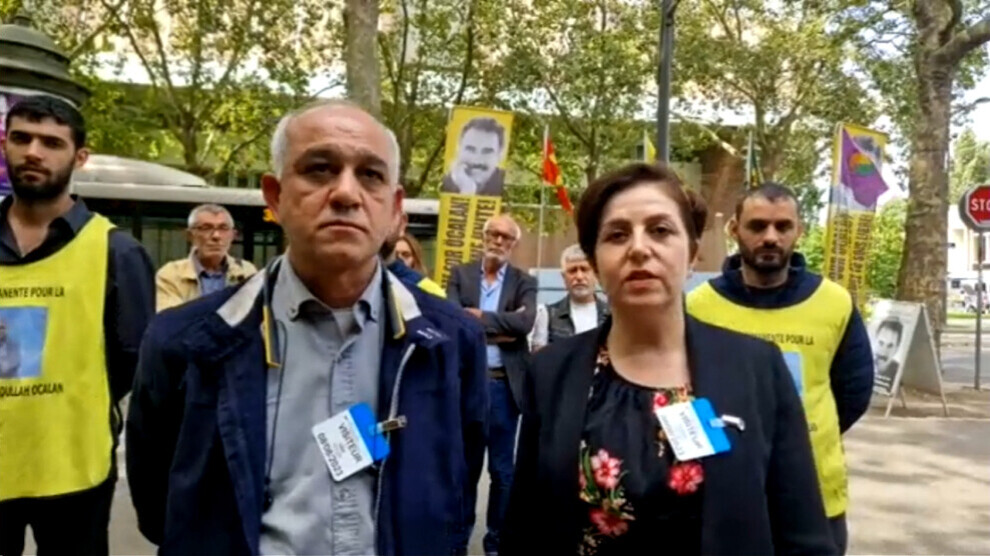Nearly three million signatures collected in North-East Syria handed over to the CPT
The Kurdish people continue their actions to prompt urgent action for Abdullah Öcalan who is held in incommunicado detention in Turkey.
The Kurdish people continue their actions to prompt urgent action for Abdullah Öcalan who is held in incommunicado detention in Turkey.

The Freedom for Abdullah Öcalan Initiative in North-East Syria has met with officials from the Committee for the Prevention of Torture (CPT) in Strasbourg to discuss the isolation imposed on the Kurdish leader on the Turkish prison island of Imrali.
The delegation from North-East Syria, made up of the co-spokesperson of the initiative, Idris Said, co-chair of the initiative, Xanim Ayo, and HDP European Council Representative Faik Yağızay, handed over the signatures collected in Rojava, North-East Syria, Aleppo and Damascus to demand freedom for Öcalan to the CPT of the Council of Europe.
Following the meeting, the delegation made a statement to the press. Speaking here, Idris Said stated that 2,646,211 signatures had been collected in the campaign from 12 January to 12 March. The campaign, he said, saw the active participation of Kurdish, Arab, Armenian, Syriac, Assyrian, Turkmen and other communities from across Rojava.
Said said the signatures were handed over to a delegation of the CPT, adding: “We demanded an immediate meeting with Öcalan by the CPT, as well as by his lawyers and family members. They told us that they had been monitoring the situation of Abdullah Öcalan and that they would convey our demands to the concerned authorities. They said that they had met with Öcalan and his three fellow prisoners on Imrali last year, for which we thanked them.”
Xanim Ayo, who attended the meeting on behalf of the Union of Lawyers in Syria, stated: “During our meeting with the CPT, we conveyed our demands for an end to the isolation of Kurdish leader Abdullah Öcalan and for his physical freedom. They provided us with information about their last meeting in Imrali. They prepared a report on it but cannot make it public because they need the permission of the country to do so.”